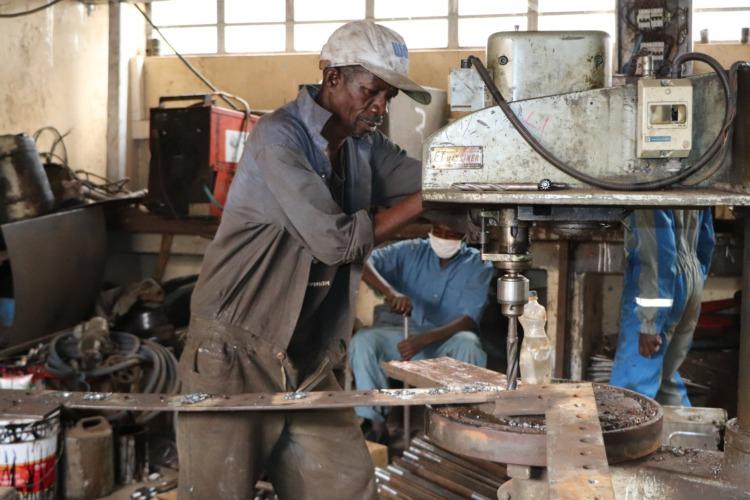Stanbic Kenya Foundation (SKF) has announced a partnership agreement with the United States African Development Foundation (USADF) to provide grants to Micro, Small, and Medium Enterprises (MSMEs), cooperatives, and producer groups in Kenya.
In a statement, USADF and SKF say they will provide a combined total of US$10 million in funding towards this initiative targeting 100 percent Kenyan-owned MSMEs in Kenya.
The Fund is also expected to provide MSMEs, cooperatives and producer groups with an opportunity to gain access to affordable finance, markets and expose them to the use of digital technologies.
Applicants must be Kenyan-owned, -led, and -registered MSMEs, cooperatives and producer groups operating in Kenya in the manufacturing, agriculture and agribusiness, health, trade, or services sectors.
Head of the Stanbic Kenya Foundation, Pauline Mbayah noted that, “The Foundation’s Financial inclusion; Job creation and Enterprise development pillars aim to catalzye the Micro, Small, and Medium entrepreneurs, cooperatives and producer groups access to alternative sources of capital which will include grant funding, affordable funding, training, and mentorship.”
“This partnership agreement speaks to our dedication and commitment to empowering Kenyan-owned businesses right from the grassroots and see them scale to higher levels. As we engage on the ground, we understand their pain points and see their potential to rise above these challenges and achieve their dreams. This is why we are keen to work with partners like USADF to help these businesses thrive and contribute to the growth of the country.”
Available data indicates that MSMEs in Kenya, estimated at 7.4 million, are the drivers of the Kenyan economy and employ close to 14.9 million people or 78 percent of Kenya’s entire labour force – and contribute approximately 40 percent of the GDP.
USADF Acting President and CEO Elisabeth Feleke stated, “With the joint support of the Stanbic Kenya Foundation and USADF, Kenyan MSMEs have the opportunity to be more productive, profitable, and globally competitive, enabling them to create employment opportunities, income-generating activities, and prosperity for communities across the country.”
USADF utilizes a community-led development approach, leveraging a pan-African network of local partners to support African-designed and African-delivered solutions. USADF provides grant capital, capacity building assistance, and convening opportunities to develop, grow, and scale African enterprises to improve lives and livelihoods.
Stanbic Kenya Foundation is the Corporate Social Investment (CSI) arm of Stanbic Bank Kenya and continues on its path to promoting and driving Kenya’s economic growth through its social economic investment initiatives.
A key initiative recently launched earlier this year was the Digital Skills and Entrepreneurship training Initiative in partnership with Microsoft, an initiative geared towards upskilling small businesses, youth, women and people differently abled with digital skills to ensure that they remain future ready.
The partnership has been launched at a time when the coronavirus pandemic has impacted most sectors of te economy negatively, especially MSMEs.
According to a report collected in July 2020 by Microsave Consulting, MSMEs have been facing unprecedented income losses and uncertainties about their future because of business disruptions due to the outbreak of COVID-19.
At the time, most MSMEs said they did not have financial reserves to meet expenses during emergencies.
Only 39 percent of Kenyans said they had set aside funds to manage emergencies that arise from loss of income.
“MSMEs need support to access and adopt digital technologies to respond
to the current pandemic situation and for long-term transformation,” the report said.
“With their regular income cut down to half and reduced availability of credit, MSMEs face an impending liquidity crisis while managing both household and business expenses,” it added.
The report revealed that the Jua Kali sector requires additional support in combating the COVID-19 pandemic.
Measures it recommended included providing water to the work sites,
support in terms of supply of personal protective gear, such as sanitizers, masks, and gloves to ensure the safety of a large number of workers.
“The Micro and Small Enterprise Authority as the nodal agency can consider providing support for business continuity and recovery. Also, the government can allocate specific budgetary support to prioritize actions around business continuity and recovery of enterprises. This will be the perfect time to provide these services to encourage informal enterprises to register and formalize.”
